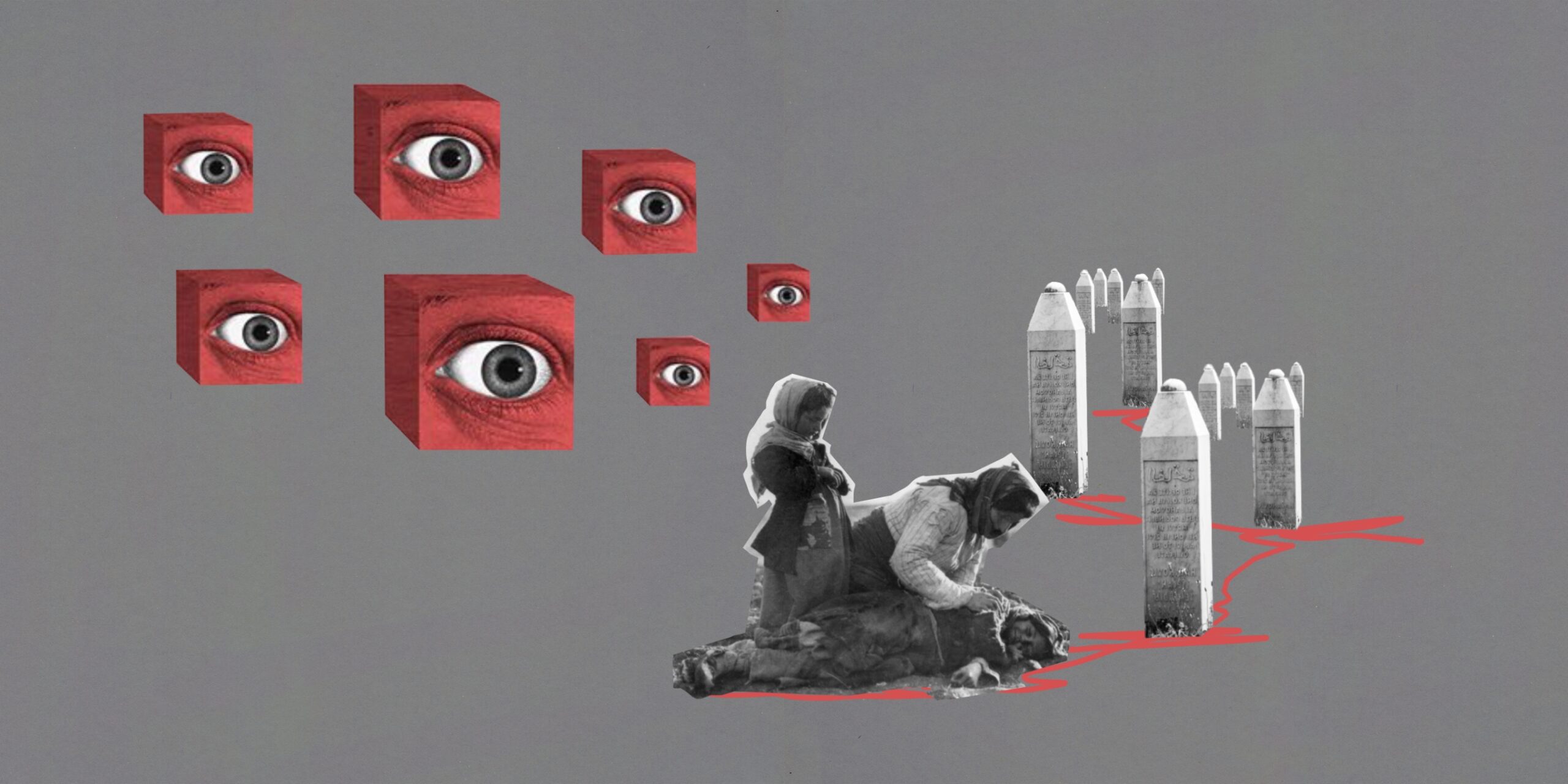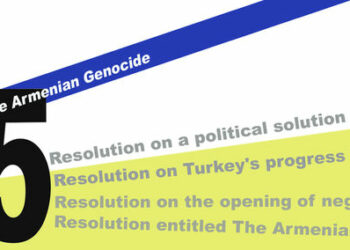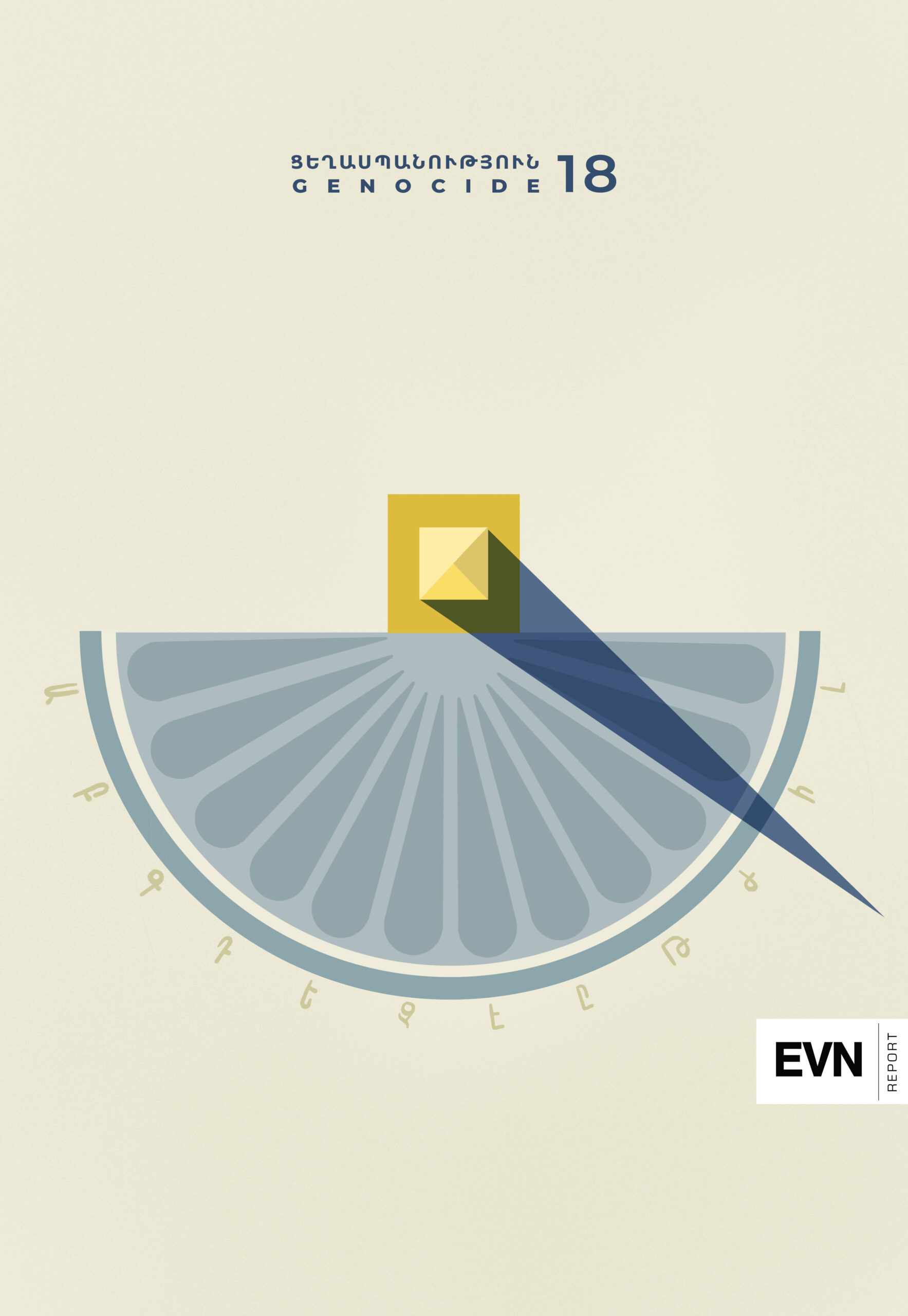
For many years, one of Armenia’s foreign policy priorities was the international recognition of the Armenian Genocide. Armenia’s Declaration of Independence and National Security Strategy cite this and the country’s diplomatic institutions and public diplomacy, including the academic, cultural and political potential of Armenia and the diaspora have consolidated and worked toward this end. In the post-independence era, Armenia and the diaspora have steadily invested effort and resources in genocide recognition and registered some succes. The Armenian Genocide has been recognized in multiple countries including the United States, Russia, Germany, France, Brazil, Argentina, and by international organizations such as the European Union, Mercosur, and the International Association of Genocide Scholars.
While it has become possible to make the Armenian Genocide relevant for modern international affairs, after the 2020 Artsakh War, it seems that this issue has somewhat been pushed into the background due to the position held by Armenia’s political elite, new geopolitical developments, and a widespread atmosphere of uncertainty in the country where it’s unclear how to move forward and use this policy of recognition in the agenda of foreign and domestic policies.
It’s critical to understand how important this issue is globally, how Armenia is trying to raise the issue of the Armenian Genocide, and how it can elevate the country’s national security and achieve a pro-Armenian solution for Artsakh.
The Political Significance of the Genocide Factor in the Modern World
There is a commonplace perception in Armenian society that the issue of genocide only concerns Armenians and that only Armenians have made genocide recognition a foreign policy priority.
Past crimes and crimes against humanity taking place in the world today are, however, being used by various international players to serve their interests. Moreover, today, this approach has solved many practical problems which has dramatically increased the political weight and importance of the genocide factor.
The Russian Invasion and the “Genocide” in Donbas
In his speech before sending troops to Ukraine, Russian President Vladimir Putin announced that for eight years genocide was being committed against the people of Donetsk and Luhansk.
“This so-called civilized world, which the self-proclaimed representatives of the West have declared themselves the only pioneers of, prefers to not notice all of this, this whole nightmare, a genocide which is being committed against 4 million people,” said Putin. “And only because they didn’t support the 2014 coup which took place in Ukraine with the support of the West.”
He made the same claim again on March 18, 2022, during a speech at an event dedicated to the unification of Crimea with Russia.
This is not the first time Russia has used the possible threat of genocide as grounds to launch military operations. In 2008, the entrance of Russian troops into Georgia was also justified because they were “saving the Ossetian people from genocide.”
Soon thereafter, Ukraine also began to use the theme of genocide as a counter claim. Ukrainian President Volodimir Zelensky denied Russia’s claims of genocide and announced that “Russia’s criminal activities against Ukraine are showing signs of genocide.” Moreover, Ukraine applied to the International Criminal Court requesting to deny Russia’s allegations [1].
After Russian troops retreated from their positions near Kyiv, numerous bodies of murdered civilians were discovered. The question of genocide started to gain more attention and coverage, especially after dozens of bodies of Ukrainian civilians were discovered in the town of Bucha. U.S. President Joe Biden, who until that point referred to the crimes taking place as “war crimes”, toughened his wording after Bucha by calling it genocide.
Assertions of Genocide Against Uyghurs
For years, the U.S. and many European countries have been condeming repressions against the Uyghur people, a Turkic community living in China, and qualifying it as genocide.
In January 2022, France’s parliament recognized and condemned the Uyghur genocide. The resolution states that the Uyghurs were being sterilized, raped, forced to have abortions, tortured, moved to special camps, while their cultural and religious heritage was being destroyed by Chinese authorities.
Similar resolutions recognizing and acknowledging the evidence of camps and systemic crimes have been passed by big Western players such as the U.S., Great Britain, Belgium, the Netherlands and Canada.
With information coming out of China being severely controlled, and with the Chinese government’s harsh policy in the whole region and toward its own population, some genocide scholars have hesitated to qualify it as a genocide, preferring the term “cultural genocide” or ethnocide. However, growing evidence has seen experts calling the atrocities against the Uyghurs as crimes against humanity and genocide. This issue, however, is extremely politicized and is being used as a tool against China by its adversaries.
Turkey’s Steps in Using the Genocide Theme
The Uyghur issue may seem a natural cause for Turkish President Recep Tayyip Erdogan to champion as he sees himself as the defender and unifier of all Turkic peoples. Turkey’s Ministry of Foreign Affairs condemned Beijing for creating an internment camp system in Xinjiang in the 2000s. In 2009, Erdogan called the suppression of riots that took place in Urumqi genocide. Subsequently, however, Ankara abandoned this rhetoric against China in favor of geopolitical expediency.
Turkey still selectively uses genocide as a political tool. While it denies the Armenian Genocide on the state level, it’s quite active in emphasizing the Bosnian genocide and intervening in the Muslim Rohingya genocide issue in Myanmar.
On July 15, 2021, the Turkey-based International Institute for the Study of Genocide and Crimes Against Humanity was created by presidential decree signed by Erdogan. It will operate under the rectorate of the University of Istanbul and aims to attract well-known genocide scholars to Turkey’s denialist approach by providing generous funding and with the goal of nudging these scholars toward denial of the genocides of Christian peoples of the Ottoman Empire. A website run by the Public Relations Department of Turkey’s Office of the President called “We Remember”, dedicated to the same idea was also launched.
Germany’s Reparations to Namibia
In 2021, following a five-year negotiation process between Germany and Namibia, Berlin agreed to invest 1.1 billion euros in the economy of the southern African state as a form of reparation for the crimes it committed during its colonial rule.
Namibia was a German colony from 1884-1915 and during that time Germany conducted a harsh policy toward the locals, including the 1904-1908 genocide committed against the local Herero people.
Germany accepted the Herero Genocide and its responsibility in 2015, after which negotiations between the two countries began.
In 2018, Germany took the first step by returning the remains of Namibian tribesmen displayed in its museums and used for scientific research. As a second step, Germany formally apologized to Namibia.
“In light of the historical and moral responsibility of Germany, we will ask Namibia and the descendants of the victims for forgiveness,” German Foreign Minister Heiko Maas announced noting that Germany will officially refer to the mass murders that took place in Namibia in 1904-1908 as genocide.
Finally, the two countries reached the topic of compensation. The financial assistance of 1.1 billion euros is planned to be provided over 30 years, to fund major infrastructure projects such as road and school construction, health care modernization, as well as education and vocational training programs for the population.
Not everyone was pleased with this process. Mass demonstrations took place in Namibia demanding Germany increase the payment to 9 billion euros. They also demanded the return of agricultural lands belonging to locals, 70 percent of which was divided among resettled German farmers after the genocide.
Germany is trying to avoid calling this process reparations, framing it as aid – something that is not only the wish of Berlin but demanded by the European Union. There is a fear that a compensation agreement could trigger new claims. For example, the Congo may raise the question of the repercussions of Belgium’s colonial policy, and Algeria the abuses by France during the period of French rule. Tanzania and Burundi are already demanding reparations from Germany for deprivations they suffered during the colonial period.
Belarusian Law on Genocide
Countries that were not particularly interested in the topic of genocide before are now trying to use it for political ends. At the end of 2021, the Belarusian parliament adopted the Law on the Genocide of the Belarusian People, which recognized crimes committed during the Second World War and the post-war period until 1951. The law calls for criminal responsibility for denying the “Genocide of the Belarusian people.”
Belarus’ motivation for this legislation was to create tools to put pressure on Germany, after Berlin criticized the repressions carried out by Alexander Lukashenko following the country’s 2020 elections.
The Rohingya Genocide and The Gambia
In November 2019, the small African state of The Gambia filed a lawsuit against the southeast Asian state of Myanmar at the International Court of Justice, accusing it of violating the UN Convention on the Prevention and Punishment of the Crime of Genocide. In August 2017, 900,000 Muslim Rohingyas fled from Myanmar to Bangladesh, while the authorities continued to repress the remaining half million who remain in the country.
This is a very unique development, when a country not directly involved initiates a judicial process against a state in another continent. While The Gambia was not a direct party to the Rohingya genocide, all states that are a party to the Genocide Convention have a common interest in preventing acts of genocide and punishing its perpetrators, in line with the legal concept of erga omnes partes, making the tool enforceable by all states. Canada and the Netherlands also supported this claim, as well as the participants of the Organization of Islamic Cooperation, of which The Gambia is an active member state. The Gambia thereby is increasing its own weight in the Muslim world, at the same time, testing the use of third states in legal disputes.
From a legal competition perspective, The Gambia’s decision to enter into this process was influenced by its Minister of Justice, Abubacarr Tambadou, who was previously a judge at the International Tribunal investigating the Rwandan Genocide, and personally visited Myanmar and coined what happened as genocide. In the court, the country is represented by international lawyer Philippe Sands, while another prominent lawyer of international law, William Shabas, who once even served as the president of the International Association of Genocide Scholars, represents Myanmar.
Conclusion
These examples are only some of the cases when international players reactivate the subject of genocides to pressure adversaries and undermine their political influence.
The invocation of genocide is often used to make mass violence more visible, in turn giving more legitimacy to subsequent steps as Russia did with Georgia using the “Ossetian genocide” pretext. This is not just about influencing the public consciousness, although information warfare is no less important than conventional warfare in modern conflicts. It also presents certain legal and political opportunities.
For example, the Responsibility to Protect (R2P), a relatively new norm in international law, may enter into force. It emphasizes that sovereignty is not a privilege, but a duty, and obliges all countries to protect the rights of people living within their borders. If a state is unable to protect its own citizens due to a lack of desire or means, this obligation passes on to the international community. In this case, any state can take measures to prevent or stop genocide.
Although the role coercive force plays in contemporary international relations has increased, the tendency to give appropriate legal packaging to the exercise of that force is equally evident. Even dictatorships, which previously did not care about their public image, cannot avoid it today. The informational, interconnected world dictates the rules of the game. And in these conditions, crimes of the past are beginning to resurface, and even great powers are willing to confront their own history, perhaps rationally calculating that admitting the wrongs of their ancestors and providing reparations to victim groups might be more politically advantageous in the long run.
Footnotes:
-
It should be noted that Russia does not recognize the jurisdiction of the International Criminal Court.
Also see
Turkish, Azerbaijani Identity Void and Genocide
Is it necessary to assimilate or exterminate a people to affirm one's identity? Has an Azerbaijani identity been founded upon the genocide of a people, who, like in Turkey, lived side by side with the Turkic populations until the rise of nationalism?
Read moreThe European Record on Recognizing the Armenian Genocide
Anna Barseghyan looks back at Europe’s record on the recognition of the Armenian Genocide and writes that as long as new genocides are happening across the world, the Armenian question remains contemporary.
Read moreMagazine Issue N18
Genocide
A Beautiful Crime: Soghomon Tehlirian and the Birth of the Concept of Genocide
A survivor of the 1915 Armenian Genocide, Soghomon Tehlirian assassinates Talaat Pasha, the mastermind behind the attempted annihilation of the Armenian nation in Berlin on March 15, 1921. Historian Suren Manukyan examines the repercussions and consequences of that act of revenge.
Read moreHow the Theme of Genocide Became an Instrument of Western Diplomacy
The recognition of the Armenian Genocide by the U.S. stemmed from its own interests. Other allied powers are considering following suit. Will Armenia be able to take advantage of this shift in global geopolitics?
Read moreWeaving a Safety Net: How Embroidering Links Two Waves of Armenian Refugees
For Armenians in the Ottoman Empire, and for Syrian-Armenians in Yerevan, crafting served as a way of earning a living and as a process of rebuilding and reimagining a social world through the temporal markers that help them nurture a sense of “home.”
Read moreWhen the Voiceless Speak: Self-Narratives of Two Genocide Survivors
Through the voices of his great-grandparents, Varak Ketsemanian gives the reader a small glimpse into the inner world of Genocide survivors.
Read moreThe Armenian Orphans of the Genocide: Separation, Reunion, Loss and Sacrifice
Many took the harrowing experience with them to their graves. Others would share only fragments of memories. All of them suffered unimaginable loss. They were the orphans of the Armenian Genocide and their stories must never be forgotten.
Read more








